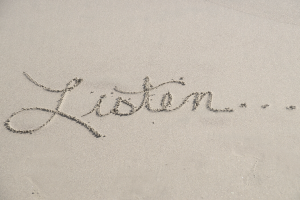UNmuted: The Necessary Discomfort in Acknowledging America’s Racial Pandemic
 When Africans arrived in the New World, they weren’t allowed to read or write. Transmitting information orally was the only way that the slaves were able to retain their culture from generation to generation. Today, that oral tradition is reflected in storytelling, rap music, and spoken word performance. This type of expression is normatively accepted as non-threatening, as it is more insular to the African American community. But when issues related to racism, social justice, and personal truth have been voiced from a larger mainstream platform, there has typically been a white gatekeeping knee-jerk function in place to silence the commentary.
When Africans arrived in the New World, they weren’t allowed to read or write. Transmitting information orally was the only way that the slaves were able to retain their culture from generation to generation. Today, that oral tradition is reflected in storytelling, rap music, and spoken word performance. This type of expression is normatively accepted as non-threatening, as it is more insular to the African American community. But when issues related to racism, social justice, and personal truth have been voiced from a larger mainstream platform, there has typically been a white gatekeeping knee-jerk function in place to silence the commentary.
White silence has always acted as a function to mute black voices. “Stop playing the race card…Stop dividing us instead of uniting us…How can you know for sure that was the reason you were treated that way?” Since their arrival in America, black people have been forced to abandon their truths in order to reduce the discomfort white people felt in addressing them. If we don’t talk about it, then it doesn’t exist, right? If we don’t see it, then there’s nothing to observe. If we don’t acknowledge it, it will just go away. So, with their hands squarely over their ears and eyes, white people have been complicit in invalidating, gaslighting, and perpetuating the structures that serve to keep the marginalized quiet.
Even as recent as this week, it is common to hear some refuse to call this racial pandemic exactly what it is. They will skirt around the truths that are a direct byproduct of a foundation built on multiple forms of racism by describing what is happening as a ‘situation’, ‘unrest’, or ‘everything that’s going on’, as if it will pass with time. Unfortunately, with the unprecedented amount of injustice that is being filmed, the screams, pleas, and visuals are too much to ignore.
And here we are – amplifying the black voices that have been conditioned to be inaudible. It’s therapeutic to be able to speak freely and honestly about racism and be heard. It’s a scary, exciting, and liberating experience all at once. But this moment is also full of skepticism, blind trust, and calculated risks. Sharing our personal narratives is healing. Being heard, without having our lived experiences diminished, discounted, and reduced to relatable occurrences is transformative.
But because it is so difficult to sit in a place of discomfort, acknowledging privilege and hearing the harsh truths, white people must intentionally adopt the role of active listener. This is a place of humility that holds no space for defensiveness.
Active listening looks like:
- Offering your undivided attention
- Abandoning the need to be a fixer or savior
- Balancing sitting with silence and questioning for clarification
- Listening to hear without rehearsing what you will say next
- Suspending all judgment and offering empathy vs. sympathy
- Reflecting what is said instead of revising the narrative for personal comfort
- Checking in with yourself to ask why you might be experiencing uneasiness
The practice of active listening fosters trust, reduces tensions, and creates a safe space that is conducive to bridge-building. Engaging in dialogue increases the opportunity to see the undeniable reality of lived experiences. We play out in our daily lives what we practice. Are you committed to hearing and learning from newly unmuted voices?
Read more from Dr. Barbara Ford Shabazz at IntentionalActivities.com
Tags: empathy, ethics, listening, race, racism, self development, self-awareness, self-understanding, societyOne Comment
Comments are closed.









Most government money allocated for Blaks over many decades to improve the Black condition have been wasted by politions looking for votes and not actually helping Blacks. Government programs have hurt more then helped (another subject). i’m from Detroit where in the 21st A.I. century half of the citizens can’t read or write. One simple program to create learning centers where Blacks can learn to read and write would have very positive self-esteem effects for individuals. Past programs like Free cell phones did nothing.